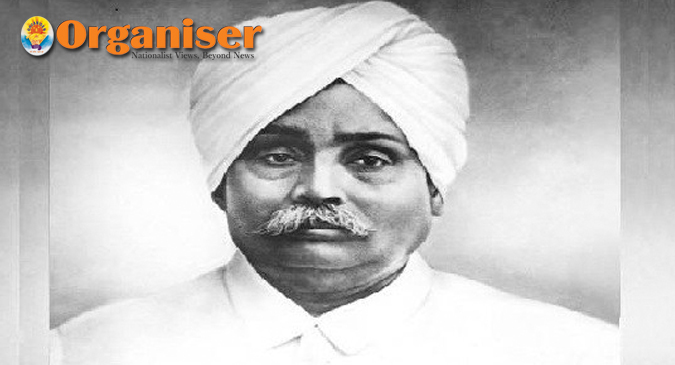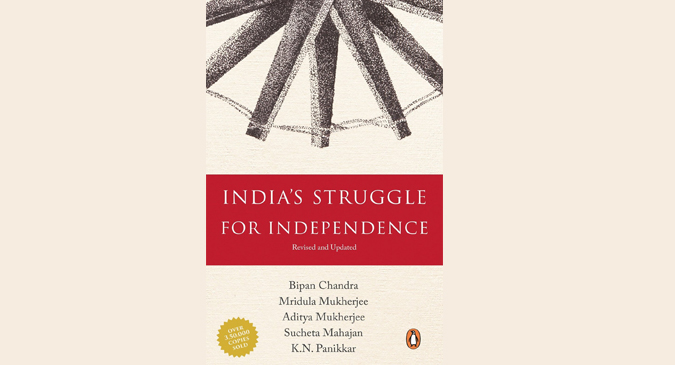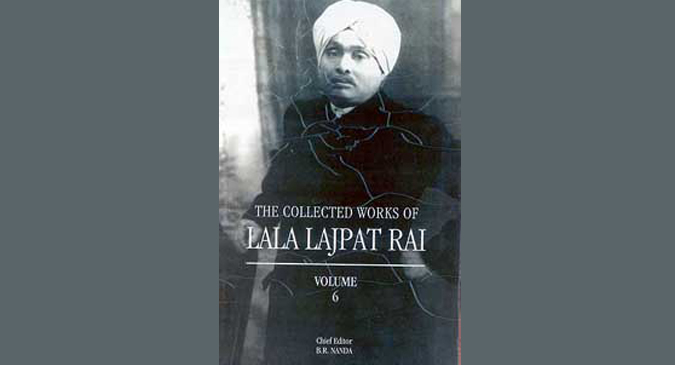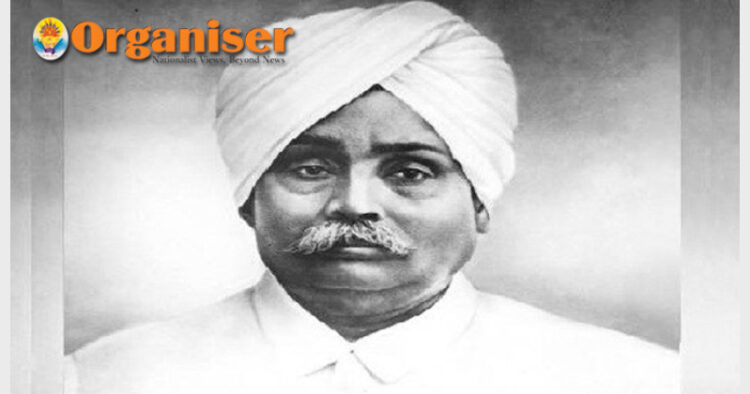Marxist historians in their ideologically indoctrinated textbooks called those nationalist leaders as ‘communal’ who dared to dissect the ‘Muslim Question’; Lala Lajpat Rai was also victimised similarly
Lala Lajpat Rai was a great nationalist leader is beyond doubt. What, however, perturbs us is the biased verdict of the Marxist historians who declared Lalaji, first, an extremist Hindu Nationalist, and then, a communalist or a liberal communalist afterwards.

Lala Lajpat Rai
The most glaring examples of misreading Lalaji’s role in the freedom struggle come from the much acclaimed text book of modern Indian history, India’s Struggle for Independence, 1857-1947 (Bipan Chandra, et al.) In the two chapters of the book (‘The Rise and Growth of Communalism” and “Communalism-The Liberal Phase”), Bipan Chandra has rather assiduously proved that Lalaji was a liberal or moderate communalist. Chandra believed that communalism is “basically and above all an Ideology on which communal politics is based,” he laments that many nationalists “fell prey to it or thought within its digits” and “saw themselves as Nationalist Hindus, Nationalist Muslims, Nationalist Sikhs, etc. and not as simple nationalist.”

Textbooks with Ideological Indoctrination of history
Bipan Chandra, then, goes on to assert that most of “the communalist before 1937-the Hindu Mahasabha the Muslim League, the Ali Brothers after 1925, MA Jinnah, Madan Mohan Malaviya, Lajpat Rai, and NC Kelkar after 1922-functioned within a liberal communal framework.”
What explains this hatred of Marxist historians like Bipan Chandra and his acolytes with Lala Lajpat Rai? And in fact, the label of extremist nationalists, which Marxists gave to the likes of Lalaji, Sri Aurobindo and even Bal Gangadhar Tilak, everyone was also termed as a ‘Communal’ at some point of time.
The Muslim Question
In a series of articles titled as ‘The Hindu-Muslim Problem’ (1924), Lala Lajpat Rai in his straight forward and incisive prose analysed the conceptions of Islam. He remarked that, “Unlike Hinduism, Islam is a faith of dogmas and doctrines. Every Muhammadan must believe not only in the existence of God without a second (La Allah Il Allah) but also that Muhammad was His prophet and that the Quran is his final word. He must also believe, according to the orthodox school, that Muhammad was the last of the prophets and whatever he said and did is binding on all his faithful followers.”

Collected Works of Lala Lajpat Rai
Lalaji continued, “There have been expounders of Islam who have tried to raise it to a kind of high occultism, but their efforts have not met with any considerable success, and Islam remains, to all intents and purposes, with the majority of its followers, what it has been all through centuries past.”
Lalaji didn’t pull his punches while criticising the religious intolrence in the Muslims. He observed that, “Religious intolerance of the severest kind has been a handmaid of chivalry, bravery, zeal, learning, and piety among the Muslims throughout Muslim history. Three out of the four first Khalifas were murdered by their fellow Muslims. The pages of Muslim history are full of similar acts done by religious zealots or political adventurers.”
Now, these observations which were culminated by the on-going politics after Khilafat movement inspired Lala Lajpat Rai, and others like Madan Mohan Malviya to try and test the ground of Hindu politics. The leaders drifted from the hypocricies of the Indian National Congress on the ‘Muslim Question’ and formed an alliance with Hindu Mahasabha. For Marxists, this is their ‘utimate’ sin!
However, while Marxist historians cornered the likes of Lala Lajpat Rai, Sri Aurobindo and Mahamana Malviya, what they could’ve done with Babasaheb Ambedkar? Didn’t Dr Ambedkar also stated similar views on the Islamic question?
Recall that Dr Ambedkar pointedly suggested that, “The brotherhood of Islam is not the universal brotherhood of man. It is brotherhood of Muslims for Muslims only. There is a fraternity, but its benefit is confined to those within that corporation. For those who are outside the corporation, there is nothing but contempt and enmity… In other words, Islam can never allow a true Muslim to adopt India as his motherland and regard a Hindu as his kith and kin.”
Misunderstanding Lalaji
Had Lalaji’s been a communalist either a die-hard or a liberal, he could not have narrated the nation the way he did (as he always did throughout his life) from the podium of the Hindu Mahasabha. In fact, by using a bit of postmodern jargon, it can be said that he deconstructed the very discourse of Hindu communalism and completely transformed it, at least in his discourse, into nationalism. In yet another revealing example, Lalaji wrote an article on ‘The Indian Problem” published serially in The Tribune (8-10 January 1924) which reiterated his unswerving faith in the necessity of Hindu-Muslim amity for the making of the nation and gaining independence:
“What then is our conception of nationhood? What do we mean by Hindu-Muslim unity? The expression Hindu-Muslim unity is only symbolic. It is not exclusive, but inclusive. When we speak of Hindu-Muslim unity, we do not exclude the other religious communities like the Sikhs, the Christians, the Parsis and the Buddhists, the Jainas, from our conception of unity or from our idea of nationhood. The Indian nation, such as it is or such as we intend to build, neither is nor will be exclusively Hindu, Muslim, Sikh or Christian. It will be each and all. That is my Swaraj. That is my goal of nationhood.”
At best, Lalaji’s formulations manifest in the preceding lines can be termed as liberal nationalism- and not liberal communalism!
However, Marxists like Bipan Chandra and Sumit Sarkar labelled everyone as a ‘Communalist’ who dared to touch the difficult ‘Muslim Question’. Lalaji has been victimised by the Marxists in their State-sponsored textbooks! The true nationalist leaders need to be retrieved for their true contributions.














Comments